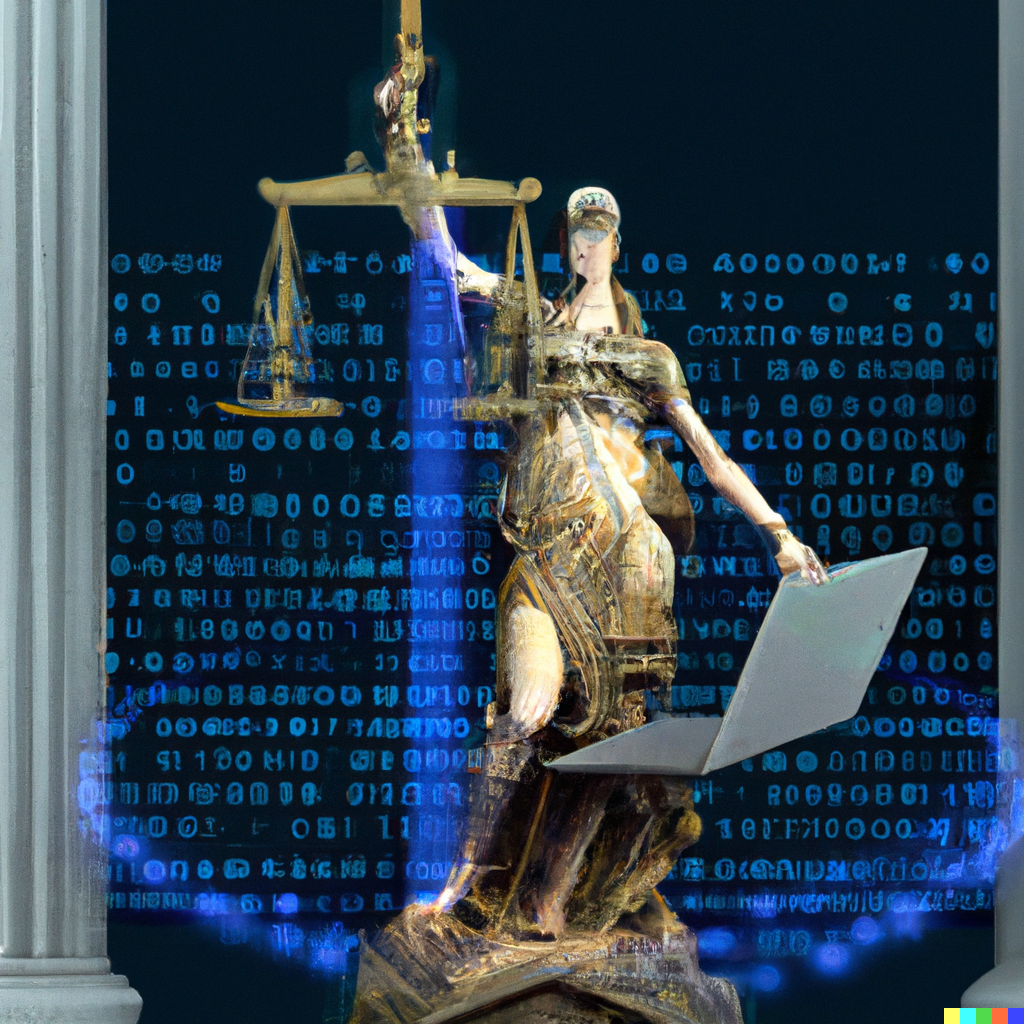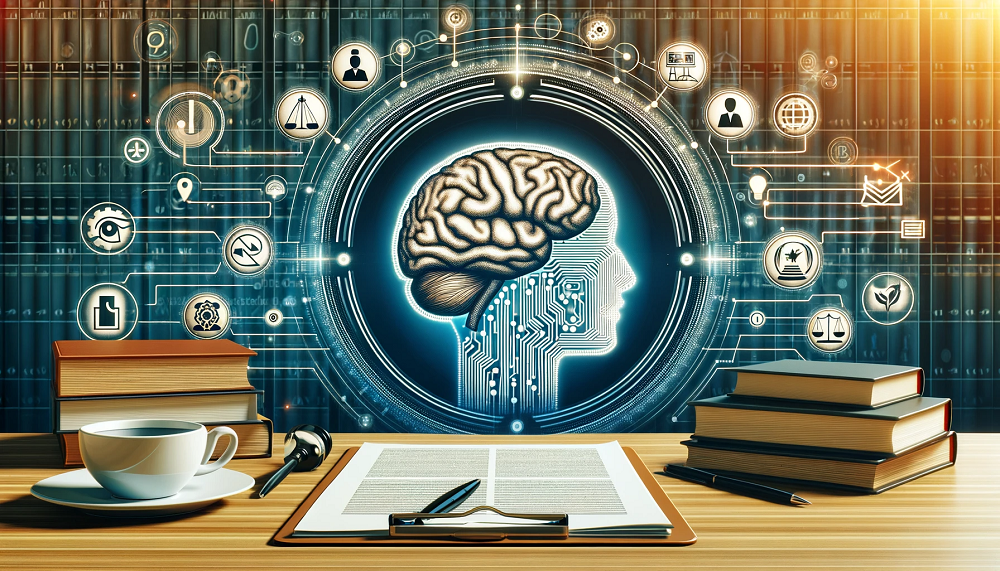 This new blog post from a contributor, a seasoned expert at the intersection of law and technology, will offer unique perspectives and real-world examples to illustrate the transformative potential of AI in the legal domain. Through their in-depth analysis, we hope to provide you with a comprehensive understanding of the current state and future prospects of AI and legal tech. We’ll explore how AI is revolutionizing the practice of law, optimizing legal case management, research, contract review, and more. Additionally, we will uncover how businesses are leveraging AI-powered tools to navigate complex legal landscapes efficiently and with enhanced accuracy.
This new blog post from a contributor, a seasoned expert at the intersection of law and technology, will offer unique perspectives and real-world examples to illustrate the transformative potential of AI in the legal domain. Through their in-depth analysis, we hope to provide you with a comprehensive understanding of the current state and future prospects of AI and legal tech. We’ll explore how AI is revolutionizing the practice of law, optimizing legal case management, research, contract review, and more. Additionally, we will uncover how businesses are leveraging AI-powered tools to navigate complex legal landscapes efficiently and with enhanced accuracy.
Key tech trends shaping the future of the industry
Technology is an indispensable part of every industry, and the legal field is no exception. Legal technology has helped an innumerable number of lawyers streamline their workflows and improve their efficiency. The scope of legal technology itself is quite vast and encompasses both the practice of law firms and businesses.
Legal technology is continuously evolving to provide professionals with the best tools to shape the future of the industry. There are several trends taking place right now in the legal tech industry, one of the biggest being artificial intelligence, also commonly referred to as AI. AI-powered legal tools offer immense potential for enhancing key practices in the legal industry such as contract analysis, research and more. These advancements in legal technology can enable legal professionals to make more data- driven decisions to improve their business-as-usual activities and improve the relationship of legal departments across organizations.
The rise of AI in the legal function has been driven by several factors, leading to a growing demand for its integration. One key catalyst has been the exponential growth of data in the legal industry, making it increasingly challenging for legal professionals to efficiently process and analyze vast amounts of information. Additionally, the complexity and intricacy of legal research and document review tasks have created a need for more accurate and time-effective solutions. AI-powered tools can assist in conducting legal research and providing data-driven insights for informed decision-making. By harnessing the power of AI, the legal function can improve efficiency, reduce costs and enhance the overall quality of the services they provide. Let us take a closer look at the power of AI in legal.
The power of AI in legal
Within the legal industry, there are several aspects of the field that can benefit from the use of AI. Its applications range from automating routine tasks to augmenting the analysis of legal documents and work. These AI-powered tools can perform so much in terms of legal work and provide actionable insights for lawyers through analysis and data extraction. Here are some ways in which AI can be applied in the legal sector:
1. Contract Review
Contracts are the backbone of work in the legal industry. Using AI-powered legal tools can promote faster contract review by using machine learning to analyze contracts, which also improves the accuracy of contracts by minimizing errors. A critical part of contract review also involves ensuring compliance with relevant laws and regulations. AI can help identify clauses during review that may conflict with existing legal requirements and provide guidance on how to adhere to compliance standards.
2. Contract Analytics
With AI, contract analytics enable organizations to stay up to date on important contract milestones. AI is transformative streamlining a variety contract workflows, as organizations can automate amendments, compliance checks and factors such as e-signature integration, without the need for manual input from lawyers. This technology helps legal departments not only keep track of current agreements and contract statuses, but enables advanced search capabilities, allowing organizations to quickly locate key contract information.
3. Legal Research
AI-powered tools offer significant benefits in the realm of legal research. These tools utilize natural language processing algorithms to analyze vast amounts of legal data, including case law, statutes and regulations. By swiftly and accurately extracting relevant information, AI-powered tools streamline the research process, allowing legal professionals to access comprehensive and up-to-date information with ease. This enhanced efficiency though AI enables lawyers to make better informed decisions, improving the overall quality of their research and saving time.
4. Legal Chatbot
The rise of chatbots in the legal space has proven to be highly effective in offering legal assistance to business users, giving them more immediate and streamlined access to legal services.. These chatbots use machine learning to answer legal inquiries and aid in request resolution.
5. Due Diligence
The due diligence process, which involves uncovering background information, can be a time-consuming task for legal practitioners. However, AI-powered platforms can significantly speed up this process, reducing the time required. This acceleration of due diligence would have a substantial impact, as it would assist in verifying current figures and facts from previous cases. Traditionally, the due diligence procedure can be cumbersome for humans, but AI would play a pivotal role in enhancing accuracy and efficiency.
6. Legal Workflow Automation
AI can assist with legal workflow automation to streamline various tasks and processes. It can streamline and automate time-consuming tasks like document assembly, contract management, legal research and case management. AI technology can extract relevant information and make data-driven decisions, reducing human error and the need for manual labor, which improves productivity and accuracy in the legal field. It also improves overall workflow management and delivers better outcomes for business users and clients.
Overcoming challenges and ethical considerations
While AI offers many benefits to the legal profession, there are also many challenges and ethical considerations. For some, AI can be seen as a threat to legal professionals, with a fear that it will replace lawyers and their services. However, this is not a possibility that should be feared, instead AI should be seen as a tool used to enhance lawyers’ capabilities, not a substitute for human expertise. Lawyers offer precious strategic value to organizations and can act as a legal advisor to the business, which AI- powered tools are still incapable of performing. Additionally, ethical considerations of using AI in legal workflows include preserving attorney-client privilege, avoiding unauthorized practice of law and maintaining professional responsibility, which uphold legal ethics, not undermine them.
Looking Ahead: Future Trends and Predictions
The future of legal technology holds immense potential. Emerging technologies such as machine learning, natural language processing and automation will continue to transform the legal industry. The future landscape of legal technology will involve greater automation, enhanced efficiency and improved client experiences.
Conclusions on AI and Legal Tech
While the role of AI in the legal field presents its fair share of both opportunities and challenges, embracing these types of legal tech advancements can prove beneficial for legal workflows by improving efficiency and delivering better outcomes for business users and clients alike. Conversely, it is crucial to address ethical considerations, ensure data privacy and security and navigate regulatory frameworks to protect business critical information. Embracing these advancements enables legal professionals to adapt to the evolving industry landscape and stay ahead of the curve. Responsible adoption of AI can unlock significant benefits, making the future of legal tech trends promising and exciting.
AI legal tech image via AI-image generating tool DALL-E


